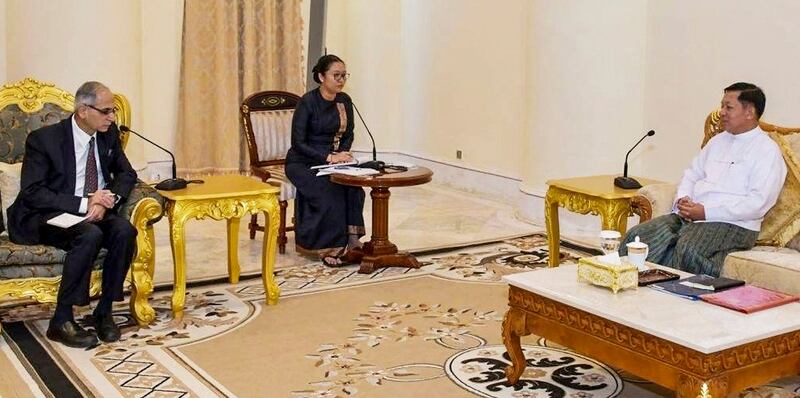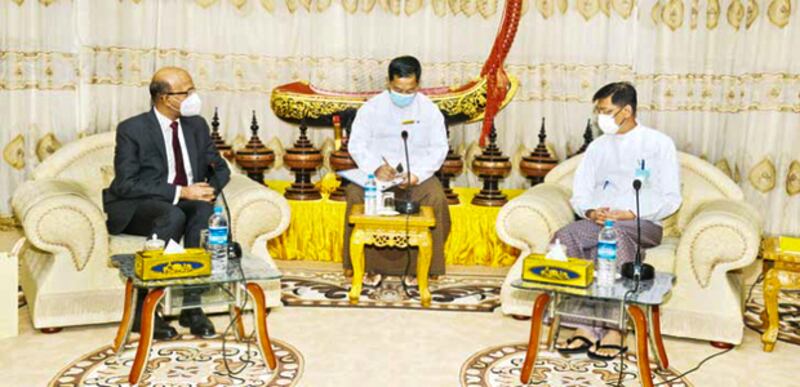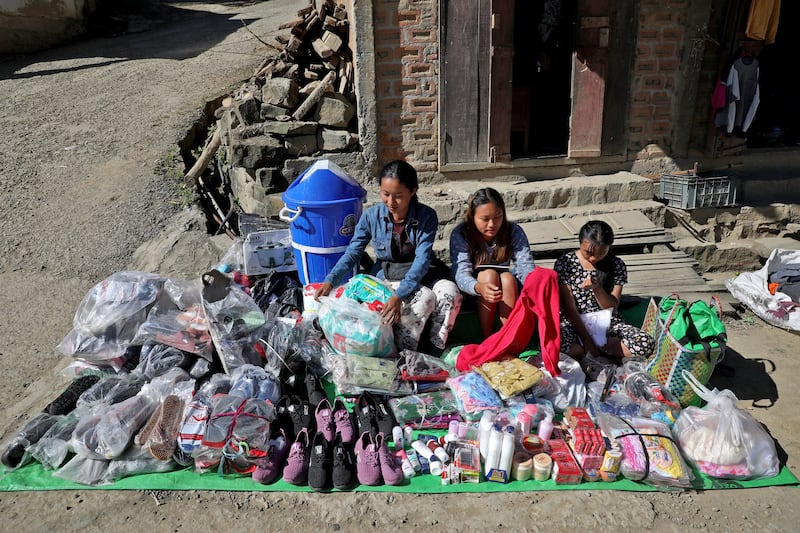India, the world’s largest democracy, has nurtured closer relations with Myanmar’s military junta over the past two years, including providing weapons at least four times since the 2021 coup d'etat, two humanitarian and advocacy organizations in India said.
The Indian government and Indian companies sold radar technologies and remote control air defense systems to Myanmar’s military government in 2021, said India for Myanmar, which helps refugees from the war-torn country who have fled to neighboring India.
Last year, heavy artillery weapons, detonators for bombs and thermal imaging devices used with automatic rifles and scopes were sold, the group said. And in a show of support for the junta, Indian Ambassador Vinay Kumar attended the military council's Independence Day ceremony on Jan. 4, it said.
“We have found out that India is keeping the same relationship with the Myanmar junta just as it
was with the previous civilian government before the military coup,” said Salai Dokhar, founder of India for Myanmar.
“I must say that India … recognizes and keeps closer relations with the military junta than Russia and China do,” Dokhar said.

A UN report from last September said that Russia, Serbia and China have also supplied lethal weaponry since the coup. The report from the Office of the United Nations High Commissioner for Human Rights also noted that an Indian state-owned enterprise supplied a remote-controlled weapons air defense station.
RFA attempted to contact the Indian Embassy in Myanmar for comment since last week but got no response.
Weapons and technology
India for Myanmar listed in a news release last month four instances in which India had provided weapons and technology to the junta after the coup.
In June 2021, India government-owned Bharat Electronics Limited sold radar technology to the junta. The following month, the same company sold a remote-control air-defense system, according to India for Myanmar, the group said.
In 2022, India's Tonbo Imaging delivered telescopes used in automatic and sniper rifles. And last March, Indian company Sandeep Metalcraft delivered fuses to be used in bombs and grenades by Myanmar’s military.

The UN report said Sandeep Metalcraft sold Myanmar fuses for ammunition for the Carl Gustaf recoilless rifle. Another organization, Justice for Myanmar, said the Myanmar military had used 84mm Carl Gustaf rounds during attacks in ethnic areas.
An Indian official noted to a UN Special Rapporteur that “Myanmar and India share important security issues along its 1,700 km shared border and in the Bay of Bengal,” according to another report from the UN.
The official said that “any arms transfers that may have been made were based on commitments that were made with Myanmar’s civilian government before the attempted coup.”
‘Inexcusable’
“India’s supply of fuses to the Myanmar military is inexcusable,” Justice For Myanmar spokesperson Yadanar Maung said in the news release. “India is directly supporting the junta’s indiscriminate attacks against civilians by allowing the export of key components in the very weapons the military is using to commit war crimes and crimes against humanity.”
Other ties between the two governments, according to India for Myanmar, include a meeting between Kumar and junta ministers Ko Ko Hlaing and Khin Yi in April and July 2022 in which they discussed cooperation in collecting data for the 2024 census.

Also, in November, Indian Foreign Secretary Vinay Mohan Kwatra visited junta chief Sr. Gen. Min Aung Hlaing, India for Myanmar said.
The lack of support for the efforts of pro-democratic groups in Myanmar partly stems from India’s ruling party, said Saiai Ceu Bik Thawng, chairman of the Interim Chin National Consultative Council.
“If only the Congress Party were the government of India in the place of BJP (Bharatiya Janata Party), it would be much different,” he said. “Their foreign policies are different. During the 1988 uprising in Myanmar, India officially stood for the revolutionary groups.”
Of course, another factor is that India must keep the junta from drawing too close with China, Salai Ceu Bik Thaw said.
Translated by Myo Min Aung. Edited by Matt Reed and Malcolm Foster.
